Coup fallout: Trade, security at risk as Mali, Niger, Burkina Faso exit ECOWAS
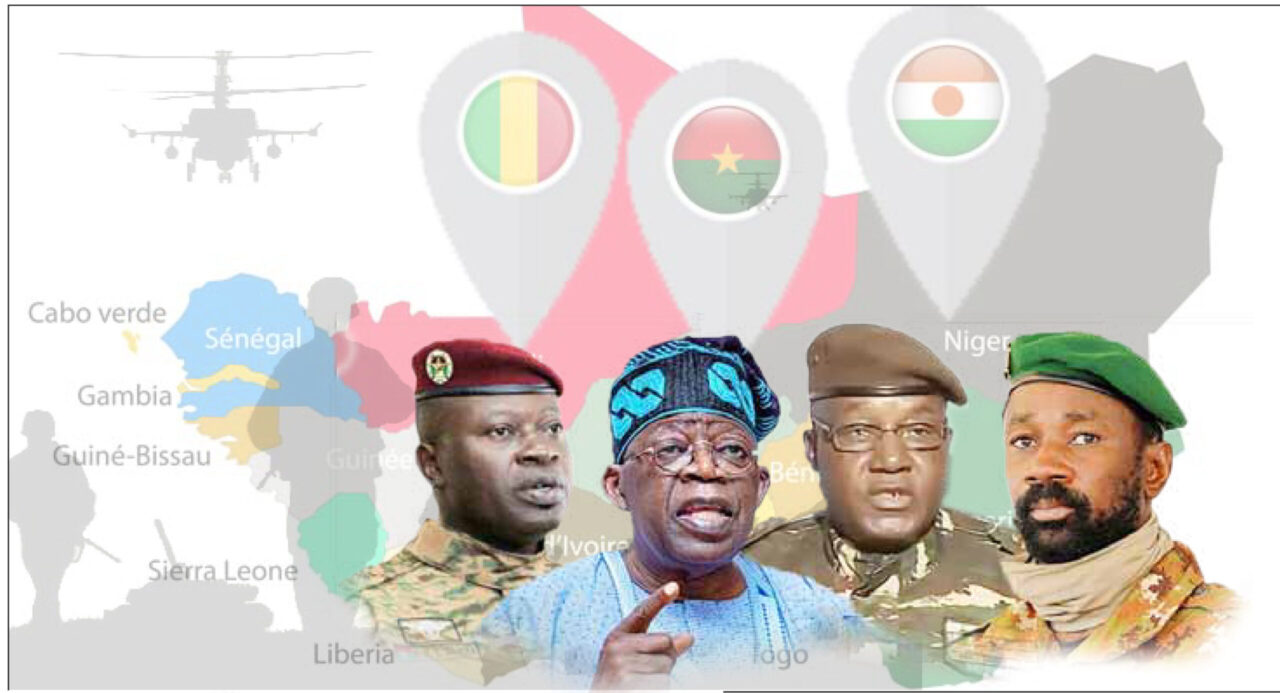
The West African regional bloc, ECOWAS, for the first time since its existence, witnessed an abrupt pull out of three countries at the same time yesterday, as Mali, Burkina Faso and Niger announced their exit.
These countries did so on the grounds that after 49 years, the bloc no longer pursues the interests of its people but is influenced by foreign powers. They also criticised ECOWAS over the sanctions imposed on them as part of efforts to reverse the coups in their countries.
The joint statement reads: “After 49 years of existence, the valiant people of Burkina, Mali and Niger note with much regret, bitterness and great disappointment that their organisation has moved away from the ideals of its founding fathers and Pan-Africanism.
“Furthermore, ECOWAS, under the influence of foreign powers, betraying its founding principles, has become a threat to its member states and its populations whose happiness it is supposed to ensure.
“Indeed, the organisation has not provided assistance to our States in the context of our existential fight against terrorism and insecurity; worse, when these States decided to take their destiny into their own hands, it adopted an irrational and unacceptable posture by imposing illegal, illegitimate, inhumane and irresponsible sanctions in violation of its own texts; all things which have further weakened populations already bruised by years of violence imposed by instrumentalised and remote-controlled terrorist hordes.
“Faced with this continuing situation, Their Excellencies, Captain Ibrahim Traoré, Colonel Assimi Goïta and Brigadier General Abdourahamane Tiani, respectively Heads of State of Burkina Faso, the Republic of Mali and the Republic of Niger, taking all their responsibilities in the face of history and responding to the expectations, concerns and aspirations of their populations, decide in complete sovereignty on the immediate withdrawal of Burkina Faso, Mali and Niger from the Economic Community of West African States.”
Note that Mauritania was the first country to quit the Bloc in December 2000, after giving one-year notice in December 1999. They, however, rejoined in December 2019.
Yesterday’s announcement of the withdrawal of Mali, Niger Republic and Burkina Faso from the Economic Community of West African States (ECOWAS) ‘with immediate effect’ has sent shock waves across the region and beyond, with top diplomats, stakeholders and Civil Society Organisations (CSOs) stating that Nigeria and the West African bloc will be the greatest losers.
Amid infiltration and inferences from Western powers, especially the United States of America (USA) and Russia, with a huge presence of Wagner Brothers fighters in the region, military leaders of the three countries expressed their defiance stance to ECOWAS in a broadcast message in Mali.
The countries cited alleged injustice of sanctions ECOWAS levied on each of them following takeovers by their military juntas. Leaders of the three nations issued a statement stating that it was a “sovereign decision” to leave the ECOWAS without delay.
The regimes of these countries have had tense ties with ECOWAS since coups occurred in Mali in 2020, Burkina Faso in 2022 and Niger in July 2023. This is concurrent with their struggles with jihadist violence and poverty.
All three have though been suspended from ECOWAS with Niger and Mali facing heavy sanctions. They have, however, with their joint forces in an “Alliance of Sahel States” few months ago hardened their positions.
In addition, French military withdrawal from the Sahel has heightened concerns over the conflicts spreading southward to Gulf of Guinea states like Ghana, Togo, Benin and Ivory Coast.
While Nigeria and the U.S., hugely interested in the return of constitutional rule in the three countries, are yet to react to the development, ECOWAS said on Sunday that the three countries that announced their withdrawal from the sub-regional group have yet to inform it of their decision. The body however said it was ready for “a negotiated solution”.
“The ECOWAS Commission is yet to receive any direct formal notification from the three Member States about their intention to withdraw from the Community,” ECOWAS said in a press release.
ECOWAS said it has been working assiduously with these countries for the restoration of constitutional order.
“Burkina Faso, Niger, and Mali remain important members of the Community and the Authority remains committed to finding a negotiated solution to the political impasse,” the statement read.
“The ECOWAS Commission remains seized with the development and shall make further pronouncements as the situation evolves.” CSOs, including Transparency International (TI), Civil Society Legislative Advocacy Centre (CISLAC), and the Transition Monitoring Group (TMG), have stated that Nigeria and ECOWAS are the greatest losers following the decision of Mali, Niger, and Burkina Faso to withdraw from the regional union.
They said that these countries did not see any value or the need to remain in ECOWAS, adding that ECOWAS and the Nigerian government have overplayed the crisis but are now the losers sadly.
The CSOs, speaking through their leader, Awwal Musa Rafsanjani, noted that the poor handling of the leadership crisis in these countries has particularly affected Nigeria.
International law expert, Komeh Kure, speaking with The Guardian, said the decision of the countries and its relevance to the procedures laid down in Article 91(1) of the ECOWAS REVISED TREATY is that a one year notice is to be submitted to the ECOWAS President. Thereafter, Article 91(2) of same stated that the government is bound to follow all the laws of ECOWAS even after the submission of a formal request to withdraw until after the one year ends.
Consequently, if the three countries applied January 28, 2024 for leave from the bloc, it would likely come into force on January 28, 2025. He added that despite the suspension of these countries from the bloc, they remain member states of the ECOWAS. “No member state can withdraw from the ECOWAS “with Immediate Effect.”
Senator Shehu Sani described the development thus: “The withdrawal of Mali, Niger Republic and Burkina Faso from ECOWAS is a serious setback for West Africa. It signifies the failure of diplomacy and dialogue. We lost our African blood brothers because of our Western conditional friends. We sacrificed our hands to keep our wristwatches.”
Emeritus Professor of International Relations, Alaba Ogunsanwo noted that the three countries have been suspended by ECOWAS and do not participate in their activities.
According to him, their withdrawal may be another way to pressurise ECOWAS to reduce the number of sanctions imposed on them.
“If ECOWAS believes that the presence of these landlocked countries is important, it may bend and reduce the sanctions. But if it thinks otherwise, it can call their bluff,” he said, recalling that when Mauritania withdrew from the bloc, it didn’t do any harm or injury to ECOWAS.
“The three countries are under pressure from the UN, AU and ECOWAS, but they chose to leave ECOWAS. So, it is for ECOWAS to call their bluff and believe that they would suffer and return to beg.
“ECOWAS can also reject their exit because it is the military governments’ that announced it, unlike Mauritania which was allowed to go under civilian rule.
“These are not civilian governments, and until civilian governments come to make up their minds on whether they want to remain in ECOWAS or not, they could be told to stay, although it may be quite problematic to suspend a country and insist they should not go,” he stated. He advised ECOWAS to shun the idea of sending troops but decide whether to reduce the sanctions or bid them farewell.
In his reaction, Ambassador Joe Keshi said the withdrawal is nothing to worry about. According to him, they will soon return to the bloc, blaming the leadership of ECOWAS for ineptitude. “They will return sooner than later. It is the inordinate ambition of the military leaders that is at play and ECOWAS poor diplomacy,” he said.
Toeing the same line of thought, Research Professor of International Relations and Strategic Studies at the Nigerian Institute of International Affairs (NIIA), Lagos, Femi Otubanjo, said the move was taken in the interest of military regimes and not necessarily as a desire of the people.
“When we have a democratic regime, the first consideration of such moves would have taken a more complex process to arrive at. So, we are seeing the unfortunate consequences of autocracy in these three countries,” he said. He also suggested that ECOWAS has been of low value to countries within Africa.
“It has been of low value to them in their fight against terrorism, insecurity, poverty, climate change and desertification. That’s why they can easily exit the bloc because they won’t lose anything. If Nigeria should exit the bloc, it would collapse because the nation bears the bulk of ECOWAS financing.
“We are talking of an almost 50-year organisation that hasn’t achieved a common currency or stop coups. There is no value template in ECOWAS. Within the bloc, there are still sit-tight leaders who have served for three tenures, and nothing has been done,” he said.
Otubanjo noted that the exit would cause inconvenience to citizens of those countries, but added however, that they are laden with porous borders so movement across states may not be that difficult.
He urged ECOWAS to seek ways to become more relevant in the next 10 years in terms of developmental needs, trade integration, curbing insecurity and climate change.
Agogo1198 Posts

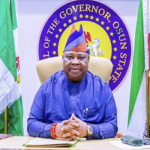



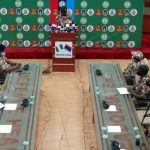



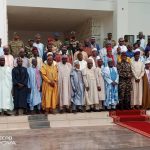
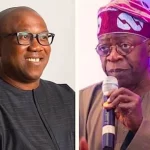
0 Comments